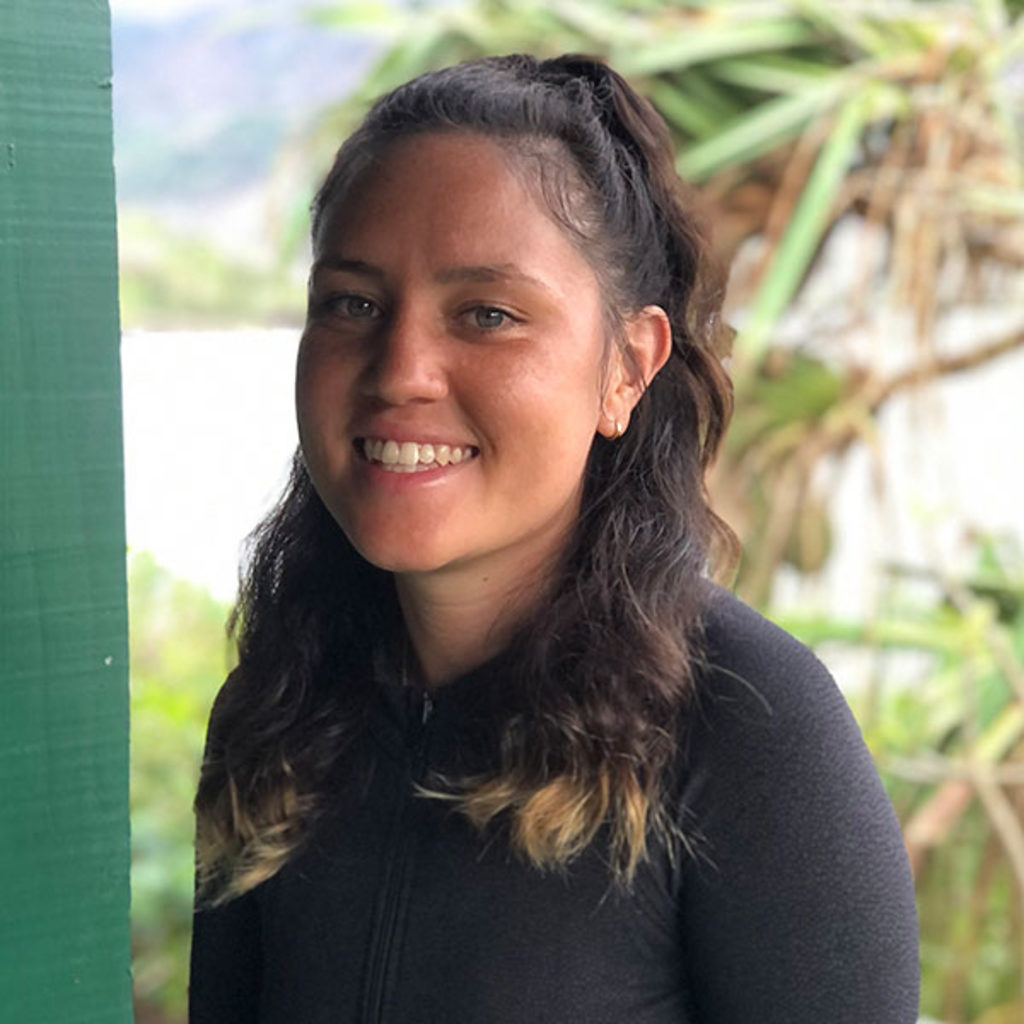On a quiet stretch of sea, off the north coast of Vanua Levu in Macuata, lies an island like no other.
Nukubati, a name that now echoes across conversations about sustainable tourism and eco-conscious living, is not just a destination – it is home. And for 33-year-old Lara Vokai, it’s the beating heart of her family, her heritage, and her life’s work.
“My name is Lara. I am of Australian and Fijian heritage. My mother comes from Koibau – the three sisters of Macuata,” she explains as she talks about her legacy.
That legacy began in 1990, when Lara’s parents, visionaries ahead of their time, looked out over a bare sandspit flanked by coconut trees and decided to create something extraordinary.
There was no electricity, no fresh water source, and no road to access it – only the sea.
But what they lacked in infrastructure, they made up for in determination.
“They knew, whatever they were going to build there, it would have to be completely self-sufficient,” Lara says.
“They would have to make their own power, collect their own water and grow their own food.”
And so, her father built a solar power system from scratch.
In the early ’90s, when most of Fiji’s resorts still hummed with diesel generators, this was almost unthinkable. But he did it, piecing together a future from solar panels and dreams.
From there, ingenuity bloomed.
Water was harvested from rooftops, channelled into large tanks.
A four-chamber septic system broke down waste and fed gardens.
Coastal forests were replanted to regenerate soil and hold the island together, tree by tree.
“I grew up watching my parents build an ecosystem that mixed development with conservation.
“It started as a dream, and they made it happen.”
When Lara took over Nukubati in 2018 at the age of 27, she inherited not just a business, but a philosophy – and an island brimming with stories.
One of those stories would come in the form of Leone, a dive instructor who became much more.
“He wasn’t just a dive instructor but someone who understood the same challenges I was facing.”
Their partnership, forged in salt air and shared purpose, would soon be tested.
Over the last five years, Lara and Leone have faced more than most do in a lifetime: the devastation of Tropical Cyclone Yasa, a fire that destroyed their solar power system, and a global pandemic that brought tourism and income to a halt for two long years.
Yet, through it all, they stood firm.
“We realised something important: resilience is our family value. Resilient is who we are!”
But sustainability, she’s quick to point out, is not just about surviving – it’s about evolving. It’s about designing an existence where every choice, every item, every action has intention.
“Planet versus profit is a false choice,” she says.
“There’s often a misconception that you have to choose between making money and protecting the environment. But at Nukubati, we’ve proven that the two can co-exist.”
From a living seawall made of native shrubs and trees like vevedu, dilo and nawanawa, to regenerative farming practices that feed their guests with garden-fresh produce, everything on Nukubati serves a dual purpose: to nourish and to preserve.
Even trips to the supermarket are strategic.
“When I go to the supermarket or a shop, I look at products and compare them based on how they are packaged and whether they contain toxic chemicals in them or not.
“If I can take the product to Nukubati without the packaging on it, I do this.
“I unwrap it and leave the rubbish in a rubbish bin in town… We don’t have a rubbish truck that comes to collect our rubbish. Burning it isn’t the solution.”
So, they reduce. They reuse. They rethink. Every vegetable bag is reusable. Every product is scrutinised.
Plastic is the enemy.
Still, for Lara, sustainability goes beyond waste and water. It’s about people, too. It’s about connection.
“How do we communicate and work with each other to move forward and reach our goals?
“Our business is also part of a larger family – our team, our coastal communities, and our guests.
“When we welcome someone to Nukubati, we’re not just providing an experience; we’re inviting them to experience our way of life, and therefore becoming part of the Nukubati Family.”
That family philosophy runs deep, passed down from her mother: “If we take care of the land and ocean, they will take care of us. And if we take care of our communities, they will sustain us.”
Today, as the sun rises over the glassy sea and catches the edge of solar panels once more rebuilt, Nukubati stands not only as a resort, but as a testament. A testament to a family’s vision. To the unbreakable bond between people and planet. And to one woman’s refusal to give up on a dream that began with nothing more than sand and coconut trees.
It’s not just sustainability – it’s survival with soul.
And at the centre of it all is Lara Vokai, quietly leading a revolution, island by island, choice by choice.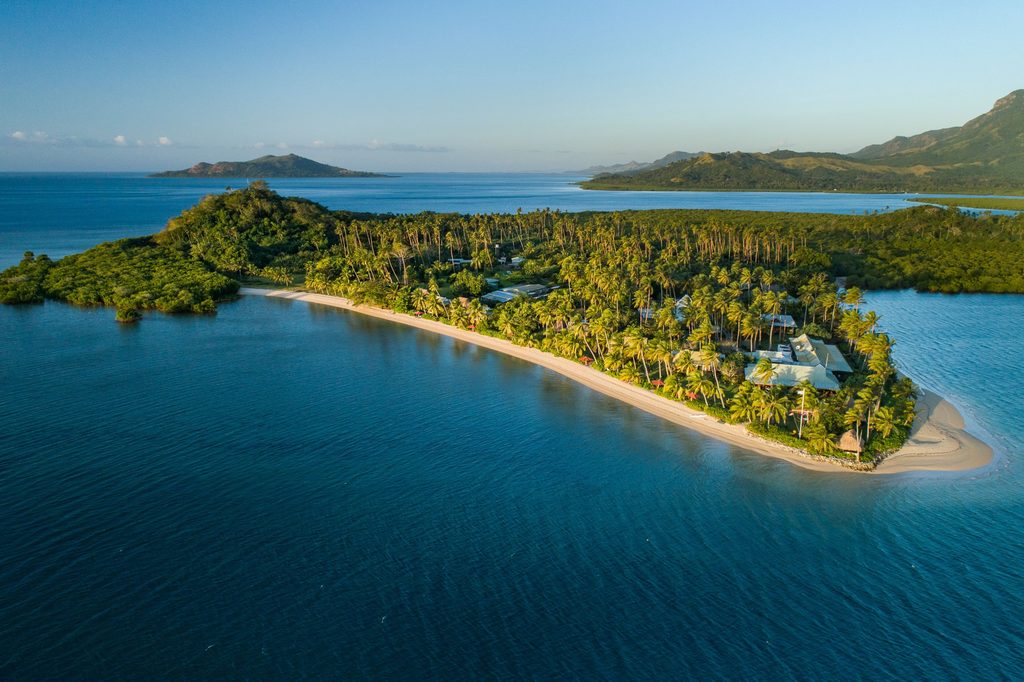
An aerial view of Nukubati Island. Picture: SUPPLIED
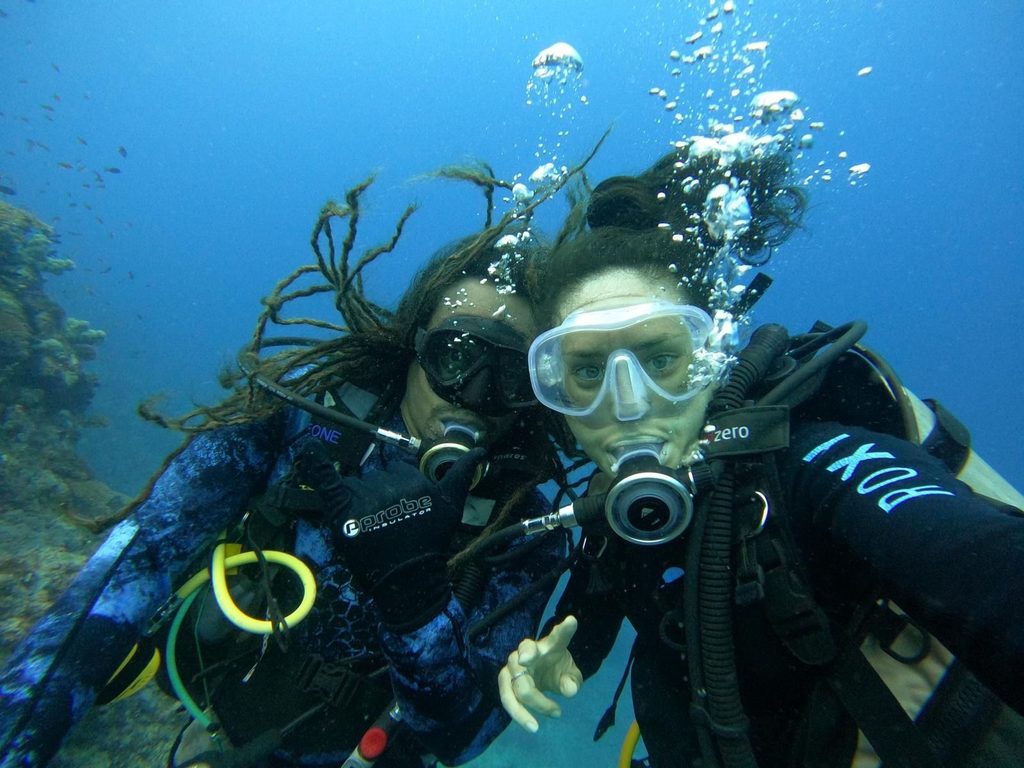
Left: Lara and Leone explore Nukubati’s underwater world. Pictures: SUPPLIED
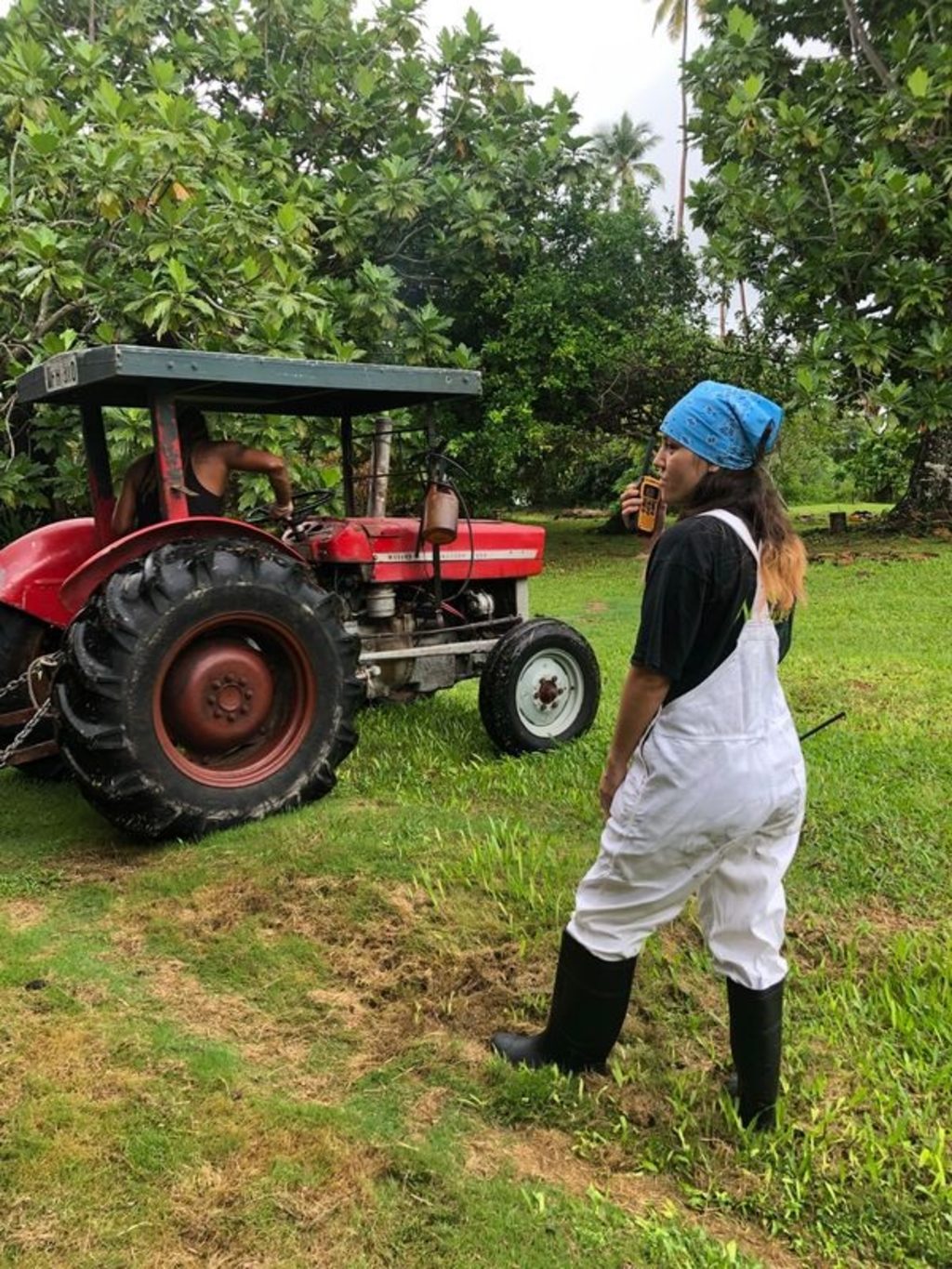
Right: The Vokai’s get their hands dirty in the outdoors.
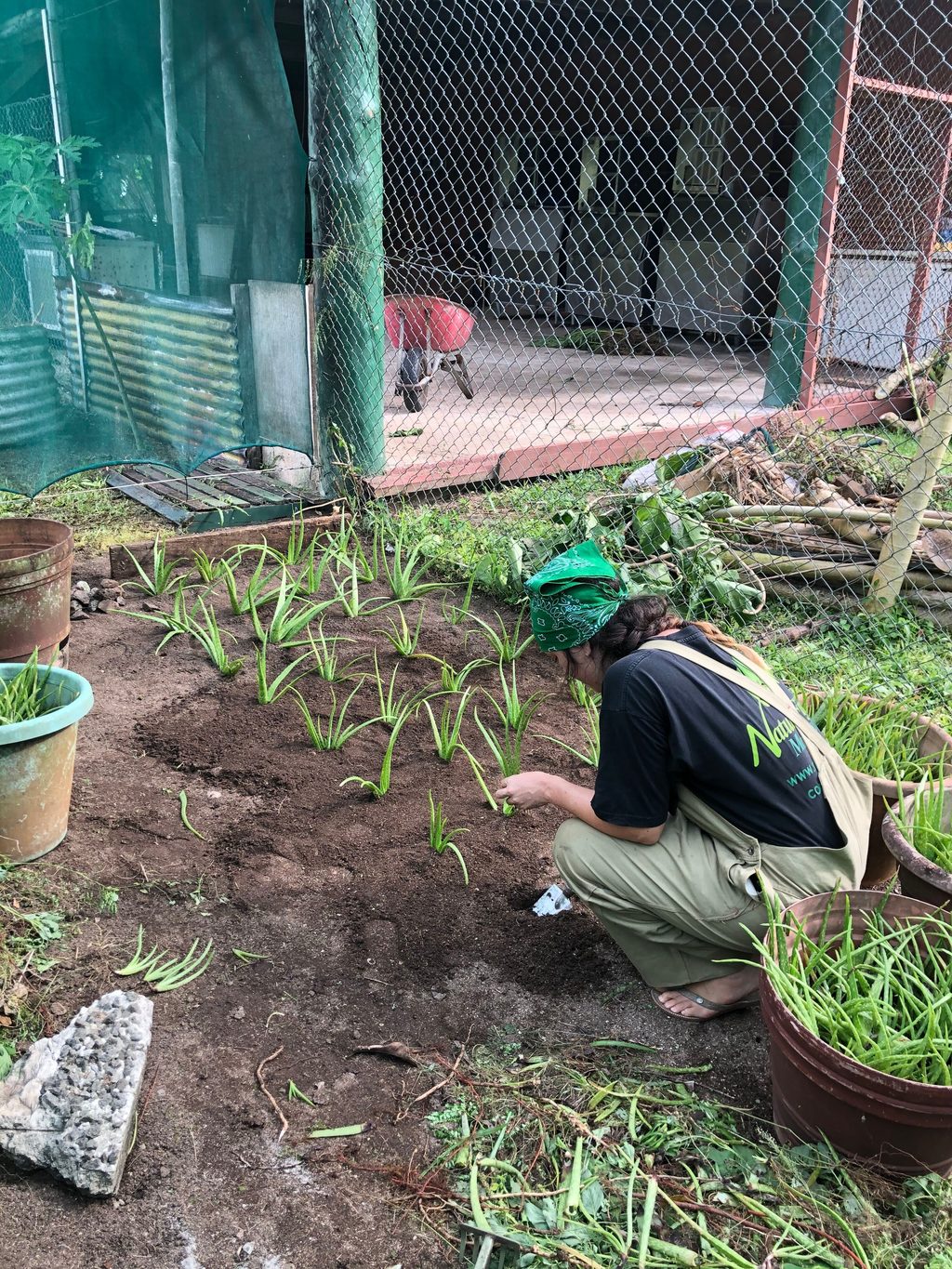
Lara Vokai doing backyard gardening. Picture: SUPPLIED
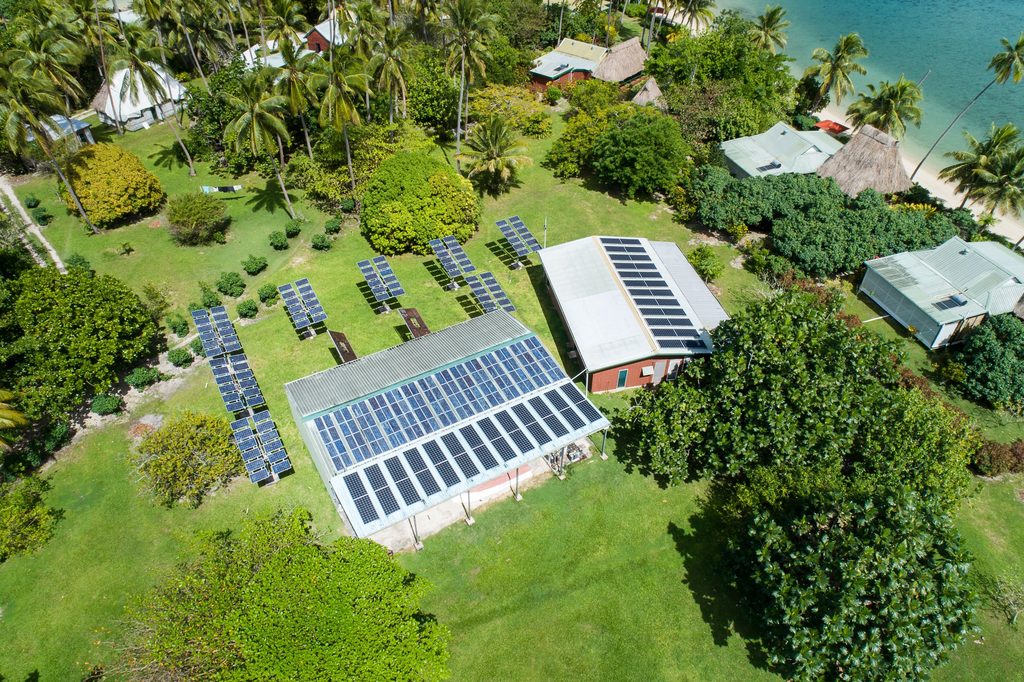
Below: An aerial view of Nukubati Island having solar panels on rooftops.

